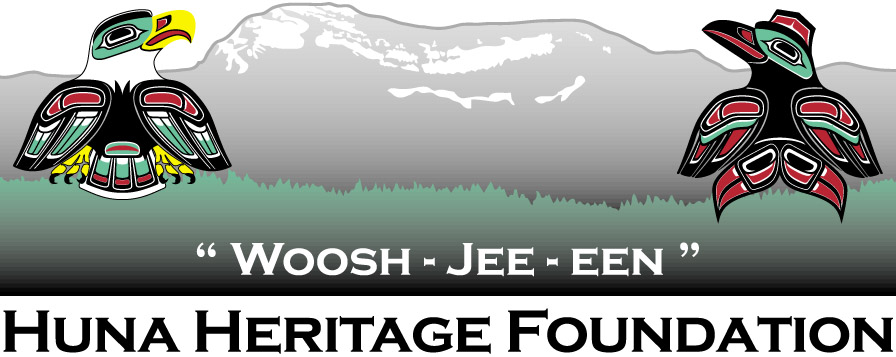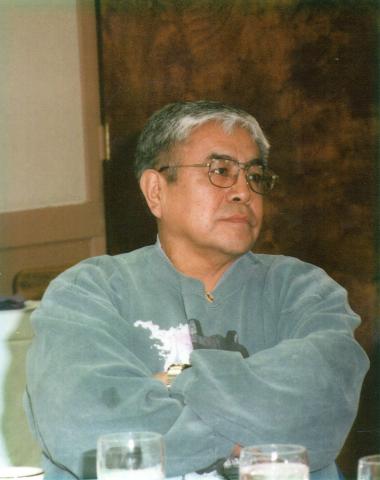John Martin
John Martin, Tlingit name Ka joolth Eesh & Kei Hee Na K'w, clan T’akdeintaan, X’áakw Hít \ X’áakw Yádi Hít (Sockeye House & Small Sockeye House)
John Martin is a noted basketball player and coach, as well as a culture bearer who was born and raised in Tenakee. John played basketball for many years, and was the coach of the Masters Basketball Association champions, Team Alliance. He is married to Carolyn Martin from Hoonah.
John Martin has been very active in sustaining Tlingit language and culture, and has testified numerous times towards these ends. Some examples of his powerful testimony include the following:
“My English name is John Martin, Sr. I was born and raised in Tenakee, Alaska. I am the Clan Leader for the members of the Sockeye House. Our Clans occupied and utilized all of the traditional lands in the Tenakee/Hoonah/Angoon area until we were forced to move to Hoonah to enable the children to attend the Hoonah Territorial School. My parents had a place to live and a beautiful garden that provided our family with fresh vegetables for the dinner table. We had access to all species of fish in the waters of Tenakee Inlet and nearby.
I oppose S. 872, as it is written. Our true Tlingit people want culture and language. We oppose corporations. They are profit-making corporations and have nothing to do with traditional cultural values. The future of our traditional culture depends on safeguarding the integrity of the indigenous habitat that remain in this Senate Bill as it is written, will convey indigenous habitat to a short-term, profit-driven corporation, the antithesis of traditional culture.
Some people say that they represent Tenakee and that ’ s a fallacy. They were not born there and did not live there as children. They were not occupants of our traditional lands. I am a blood descendant and was placed in leadership properly by our forefathers.
Tenakee is the last Tlingit village in Southeast Alaska that is not corrupted by corporations. Please help us keep it that way! Don’t let the corporation steal our Tlingit land!
The Federal Government with Governor Brady, allowed the Tsimshian’s to have their cultural village on Tlingit land. Please consider filling the balance by doing the same for the Tlingit blood descendants to have Tenakee as a Tlingit cultural village to keep our culture, language, songs and dance alive for our Children and grandchildren.
We have less than eight fluent Tlingit speakers in the northern saltwater area. Don’t let our language die. This also was a vision of the late William Paul, Tlingit Attorney from the village of Wrangell, Alaska.
Thank you very much for your time.” (From Public Testimony against S. 872 Posted on October 8, 2015)
Speaking about the Tlingit tradition of Cremation, he noted “The Tlingit used to cremate…it was the cleanest way to dispose of the dead. It helped maintain this purity…Elders explained that “in life we take from the land so now we give back to it”…that happened in Glacier Bay.” (From 2014 Assessing Possible Cruise Ship Impacts on Huna Tlingit Ethnographic Resources in Glacier Bay Douglas Deur Portland State University, deur@pdx.edu Thomas Thornton University of Oxford).
“Good morning. My English name is John Martin, Sr.; my Tlingit name is Xa Kluth Eesh (ph). I'm a T'akdeintaan from the Sockeye House. I was born in Tenakee in 1935. I am bilingual and I understand the culture and tradition.
I'd like to interpret in Tlingit my Tlingit statement. I lost my father in Dennis Bay going after his food and his way of life to support himself. And I also want to relate an incident that occurred here in Juneau by a Tlingit by the name of Sam Hopkins. Sam was an elderly Tlingit that had a diet of salmon, and he could -- he looked forward to when the salmon was running in the river. And he used to take his gaff hook out to Montana Creek and it was on every other day. If the health allowed him, he'd probably do it every day. And he was thrown in jail consistently. And when he was in jail he wouldn't eat the regular diet. And one of the things that he said in Tlingit was (Speaking Tlingit). What he was saying is it doesn't matter to me. No matter what they do to me, it doesn't matter, he said, the most important thing is my food. I don't care if they arrest me, I'm going too continually to go out and get my salmon. So when Sam would get in his car, he would -- the police cars and Fish & Game would say here comes Sam Hopkins, just let him go on through. You can notice his car, he's got his fish hook and pole tied to his car. So they would allow him to go, and that's the way he died. They would allow him.
Those are special considerations for Sam as a Tlingit, an elderly Tlingit that was on a salmon diet. I am speaking to you this morning on Proposal 8. And I want to say it to you because I think the Advisory Board is here to look out for interests from your geographic area, namely Southeast and some of the communities. I can only relate to you what our recipients, our enrollees from Tenakee -- and I don't want -- I want to impress on you that I'm not doing it on my own. I want to say to you that laws that affect the Native Americans must be consistent.
The Federal Government has granted fishing and water rights to the State of Washington Indian tribes based upon an existing treaty, executive orders and acts of Congress as of March 17, 1988. Federally recognized tribe villages must retain their sovereignty, which includes but not limited to, fishing, hunting, trapping, forestry and other natural resources. The Tenakee Tribe affirms that it has already earned the right to live and exist and maintain, protect and advance our traditional system of commerce and subsistence lifestyle that we have exercised since time in memorium. Our question to the Regional Council is would you recommend on behalf of Tenakee that we manage our culture existence and traditional subsistence lifestyle.” (From SOUTHEAST SUBSISTENCE REGIONAL ADVISORY COUNCIL PUBLIC MEETING February 4, 1994 Civic Center Juneau, Alaska)”



